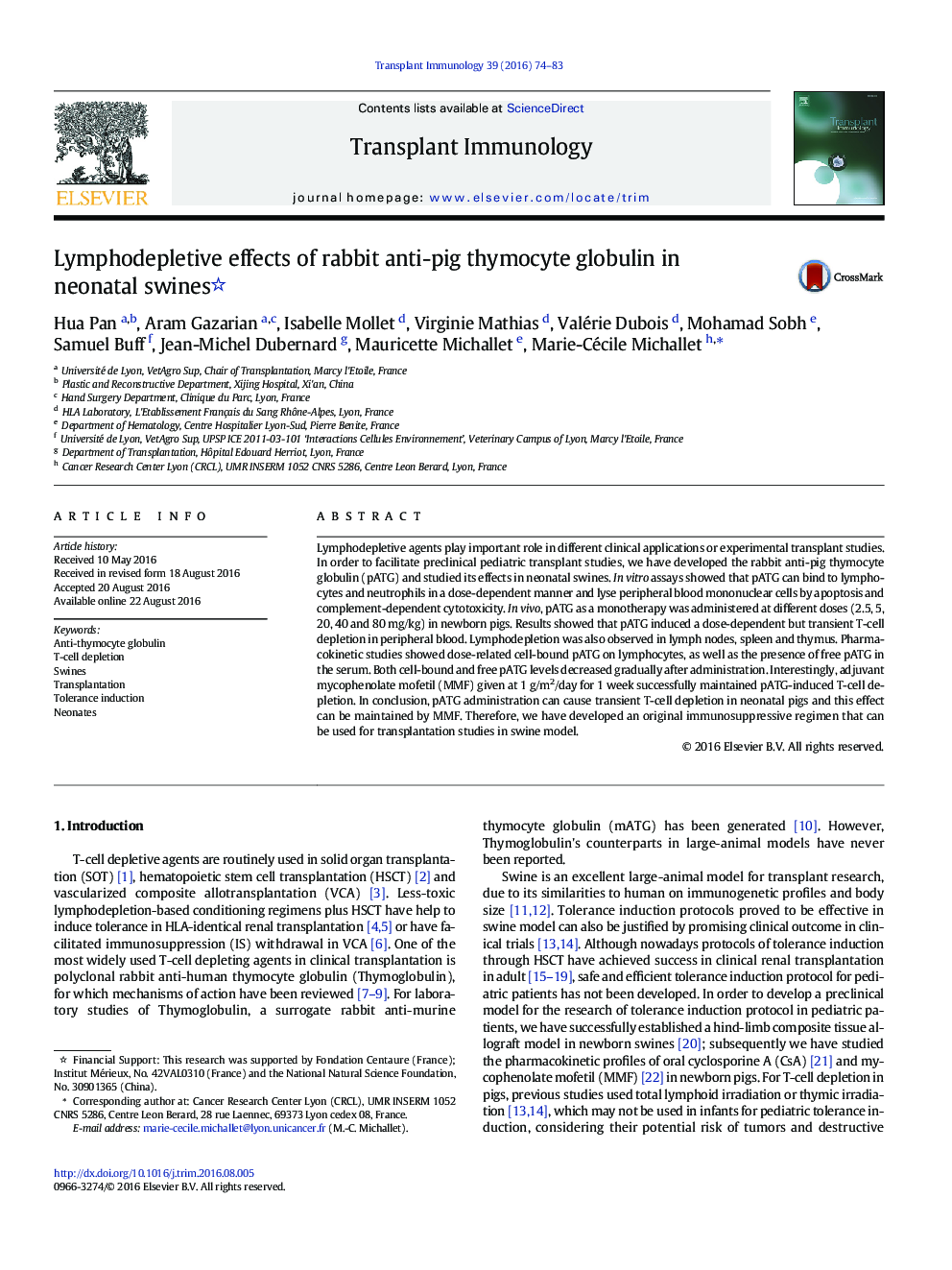| Article ID | Journal | Published Year | Pages | File Type |
|---|---|---|---|---|
| 5670473 | Transplant Immunology | 2016 | 10 Pages |
â¢The lymphodepletive effects of rabbit anti-pig thymocyte globulin (pATG - a surrogate of human ATG) were evaluated in a pre-clinical neonatal swine model.â¢pATG, like human ATG, induces cellular apoptosis and complement-dependent cytotoxicity in vitro.â¢pATG is well tolerated in neonatal swines and cause T-cell depletion in vivo.â¢The combination of pATG and Mycophenolate Mofetil (MMF) may be considered in tolerance induction protocols for pediatric patients.
Lymphodepletive agents play important role in different clinical applications or experimental transplant studies. In order to facilitate preclinical pediatric transplant studies, we have developed the rabbit anti-pig thymocyte globulin (pATG) and studied its effects in neonatal swines. In vitro assays showed that pATG can bind to lymphocytes and neutrophils in a dose-dependent manner and lyse peripheral blood mononuclear cells by apoptosis and complement-dependent cytotoxicity. In vivo, pATG as a monotherapy was administered at different doses (2.5, 5, 20, 40 and 80Â mg/kg) in newborn pigs. Results showed that pATG induced a dose-dependent but transient T-cell depletion in peripheral blood. Lymphodepletion was also observed in lymph nodes, spleen and thymus. Pharmacokinetic studies showed dose-related cell-bound pATG on lymphocytes, as well as the presence of free pATG in the serum. Both cell-bound and free pATG levels decreased gradually after administration. Interestingly, adjuvant mycophenolate mofetil (MMF) given at 1Â g/m2/day for 1Â week successfully maintained pATG-induced T-cell depletion. In conclusion, pATG administration can cause transient T-cell depletion in neonatal pigs and this effect can be maintained by MMF. Therefore, we have developed an original immunosuppressive regimen that can be used for transplantation studies in swine model.
